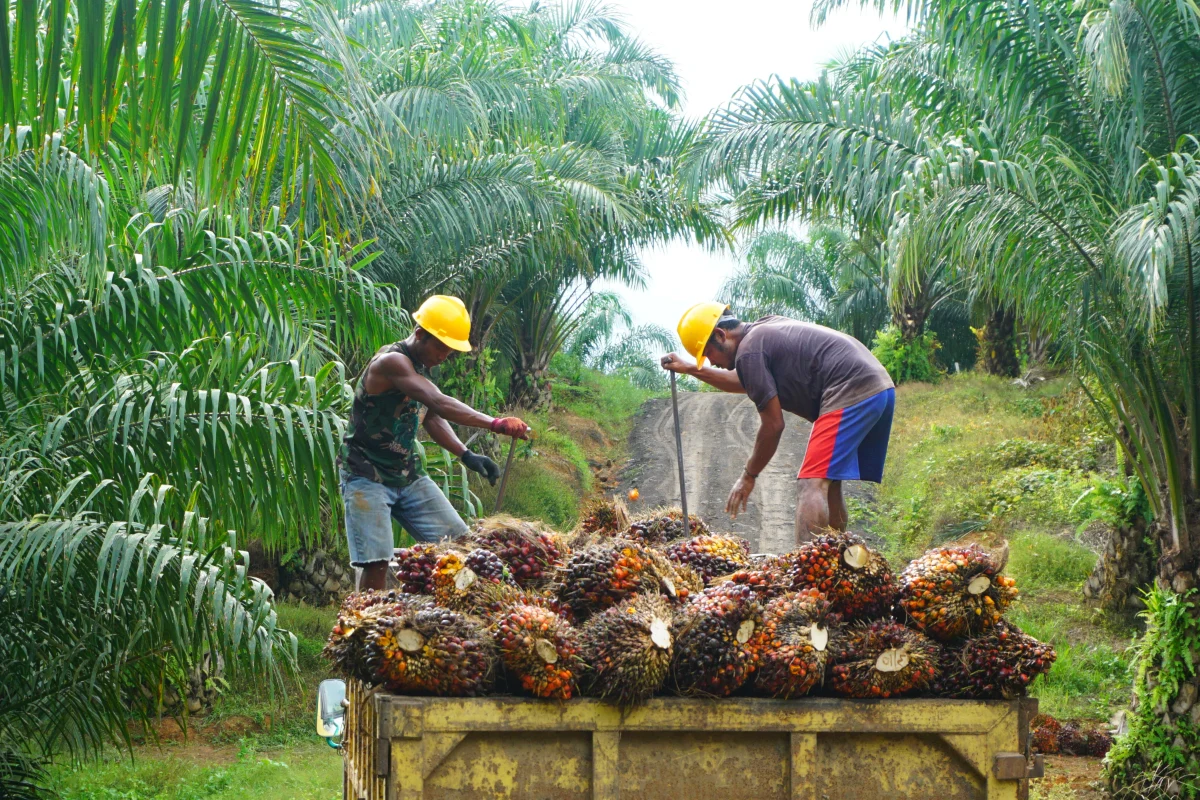Global Palm Oil Production:
Palm oil is becoming an important part of the industry. From shampoos, to detergents, from chocolate to cookies, every other product contains palm oil. Palm oil production has increased rapidly over the past 50 years. In 1970, the world was producing only 2 million tonnes. This is now 108 times higher: in 2018 the world produced nearly 218 million tonnes.


How Palm Oil is leading to Deforestation?
Palm oil is one of the most used ingredients in almost all industries; be it food or cosmetics. Its high demand has led to unsustainable extensive cultivation. To make way for palm oil plantations, huge areas of natural forests have been removed and countless animal species have lost their homes. Palm tree grows only in tropical environments within 10 degrees of the equator. When palm oil producers want to expand their businesses but run out of available lands, they turn to forest cutting. In this situation, rainforest deforestation for palm oil reaches an immensely vast span. It happens because the palm is a tropical or subtropical plant, and rainforest areas are the most suitable for its growth. A growing demand for the commodity drove suppliers to clear 500 square miles of rainforest in Southeast Asia alone between 2015 and 2018.


Adverse effects of Palm Oil Deforestation:
- Endangers thousands of rainforest species by destroying their natural habitat for the sake of plantations, which drastically impacts biodiversity. Indeed, Indonesian forests house 10% of the world’s unique fauna species, as of the 2014 report of the Ministry of Environment and Forestry in Indonesia.
- Deprives indigenous peoples of their native lands in Southeastern Asia where they lived for centuries but lost their land rights and were displaced.
- Contributes to global warming by increasing GHG emissions due to carbon release, particularly, after slash-and-burn practices. In addition, choking fumes of burning forests poison people and nature.
- Increases risks of flooding and landslides because trees make a natural barrier to water flows, and newly planted ones need time to grow.
- Reduces soil health. Trees hold the earth in place with their strong root systems, but the nutrient-rich top layer is easily washed away after their removal, which is adverse to soil fertility. Besides, palm oil deforestation leads not only to soil depletion but soil erosion and sedimentation as well.
- Adds to water pollution. Washed-off soil particles and other contaminants leak off to water bodies.
References:
https://ourworldindata.org/palm-oil
https://kitenest.co.uk/blogs/news/how-do-cosmetics-impact-the-environment
https://www.treehugger.com/environmental-impact-of-cosmetics-5207672
https://eos.com/blog/palm-oil-deforestation/
https://www.worldwildlife.org/stories/deforestation-fronts






